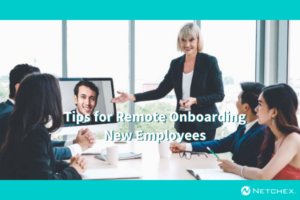Making a PACT: The Four Keys to Successful Onboarding
How would you like to improve company culture while also helping new hires succeed? Onboarding is a huge opportunity. Unfortunately, it is often overlooked. Recruiting, interviewing, and selecting the right candidate are all important, but what do you do after all of that? First, there’s some paperwork for taxes and benefits. Later, an out-of-date orientation […]
Read ArticleTips for Remote Onboarding New Employees
How are you welcoming new remote employees to the team? Do you have a personalized remote onboarding process, or do you just alter your in-person onboarding process? If your company is only do the latter, that might not be enough. Onboarding time is especially important for remote workers who may never experience the office in-person. […]
Read ArticleCommon Onboarding Mistakes and How to Avoid Them Using HR Software
First impressions are important in all aspects of life, even at the office. While the recruiting and interviewing process is often the actual introduction of your company for new hires, their first day is the real test. If your company has a carefully thought out plan and utilizes onboarding software, you can avoid many of […]
Read Article10 Tips to Improve Your Onboarding Experience
The onboarding experience sets the tone for new hires. You’ve chosen the best applicants. Now, it’s time to get them excited about joining the team. The onboarding experience is important for not only new employees, but your whole team. Are you using this crucial time to: Here are a few tips for improving your company’s […]
Read ArticleTracking the Employee Lifecycle
November 6, 2013 If you are a business owner, you know that your employees are your most valuable resource. Part of effective management is having accurate data on your employees safely stored in a secure format, and one way to accomplish this is through a computer-based human resources management system (HRMS). These systems have the […]
Read Article



